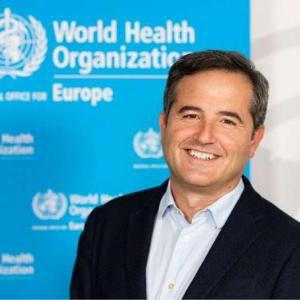Dear Colleagues, Partners, Friends,
A warm welcome to the National Urban Forum on behalf of all the UN Family in Serbia.
Together with our partners, we are convening this forum to talk about how to make cities better places to live, where citizens’ well-being (and I am also wearing my WHO’s hat here) is at the centre and everyone's needs are met. We would like for the next two days to be a platform where we can share ideas on how to make cities welcoming, safe and supportive.
I appreciate that we will have contributions from four UN agencies here at the forum - UN Habitat, UNDP, UNEP, UNESCO, UNFPA and UNOPS – bringing all relevant aspects of urban development: spatial planning, disaster risk reduction, sustainable housing, focus on gender, youth, persons with disabilities, migrants, and refugees, but also health aspects such as tobacco free indoor spaces in urban contexts. We also have regional partners bring to our discussion the experience of different countries.
I would like to take this opportunity to make three key points:
- Why is this discussion relevant to citizens, especially the citizens of Niš?
Cities play a unique role, in Serbia and globally. A recent estimate shows that cities in Serbia contribute as much as 75 percent of the national Gross Value Added (GVA) as well as 74 percent of all jobs. So, there is no doubt that cities are engines of growth. The UN in Serbia collaborates with our government partners to promote sustainable and resilient growth. Our focus is on improving services for citizens across all municipalities, while also fostering shared and inclusive prosperity in cities.
- My second point relates to addressing spatial disparities and inequalities between and within urban areas.
We know that regional disparities are large (for example compering Belgrade to Niš region), but they are also widening. We at the UN, in all areas in which we work, have the priority to leave no one behind by redefining investments for a more balanced distribution of wealth. Simply put, the VLR enables communities in Niš to plan their own future; this experience can be scaled up to other localities across Serbia.
But to do this we also need to scale up investments. And this brings me to my final point. Finance.
- How do we finance sustainable urban development?
The financing needs at the local level in Serbia are enormous. To respond to these needs, we will need a mix of public and private investment and a mix of revenue sources. We must fully exploit the potential of PPPs, which are already expanding significantly in Serbia and building the capacity of LSGs to prepare bankable projects. The recently adopted EU Growth Plan foresees an important role for local self-governments, with specific measures to protect the environment.
As a final remark wellbeing starts with smoke free indoor polices and there is no wellbeing and protection of environment without tobacco control.
I wish you a successful conference.






